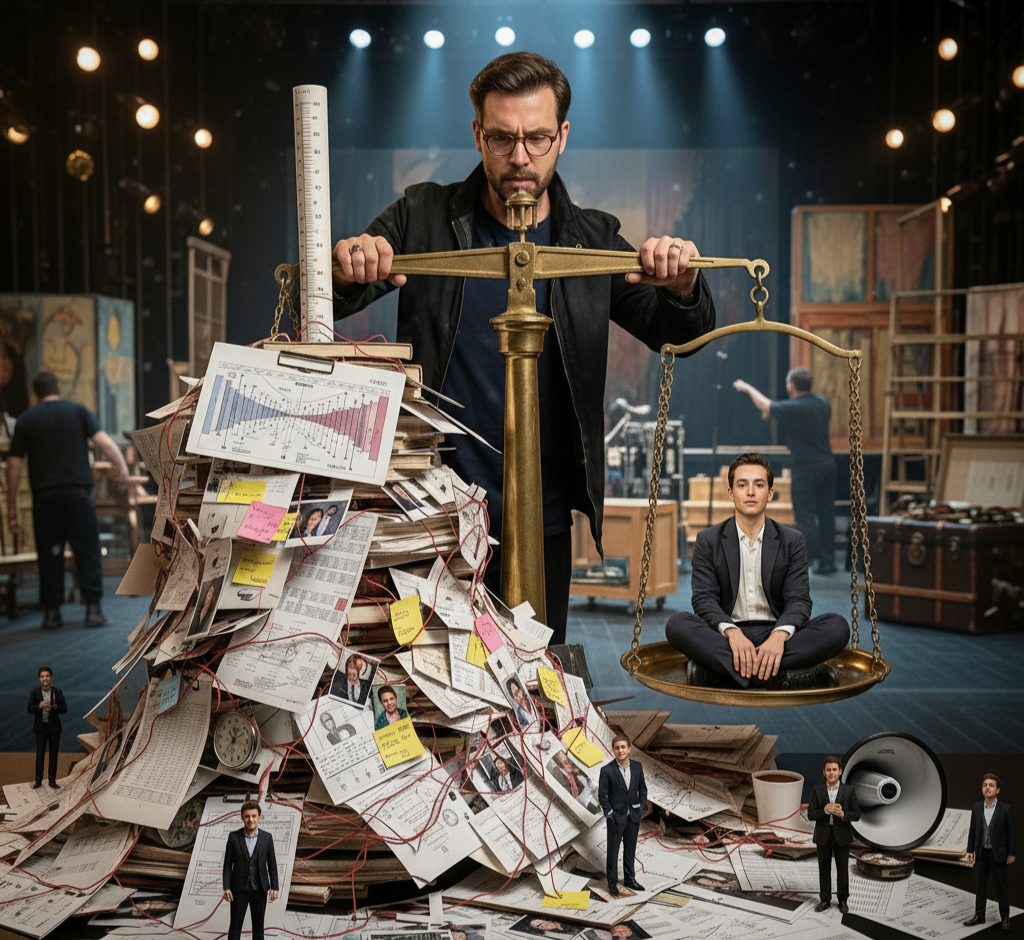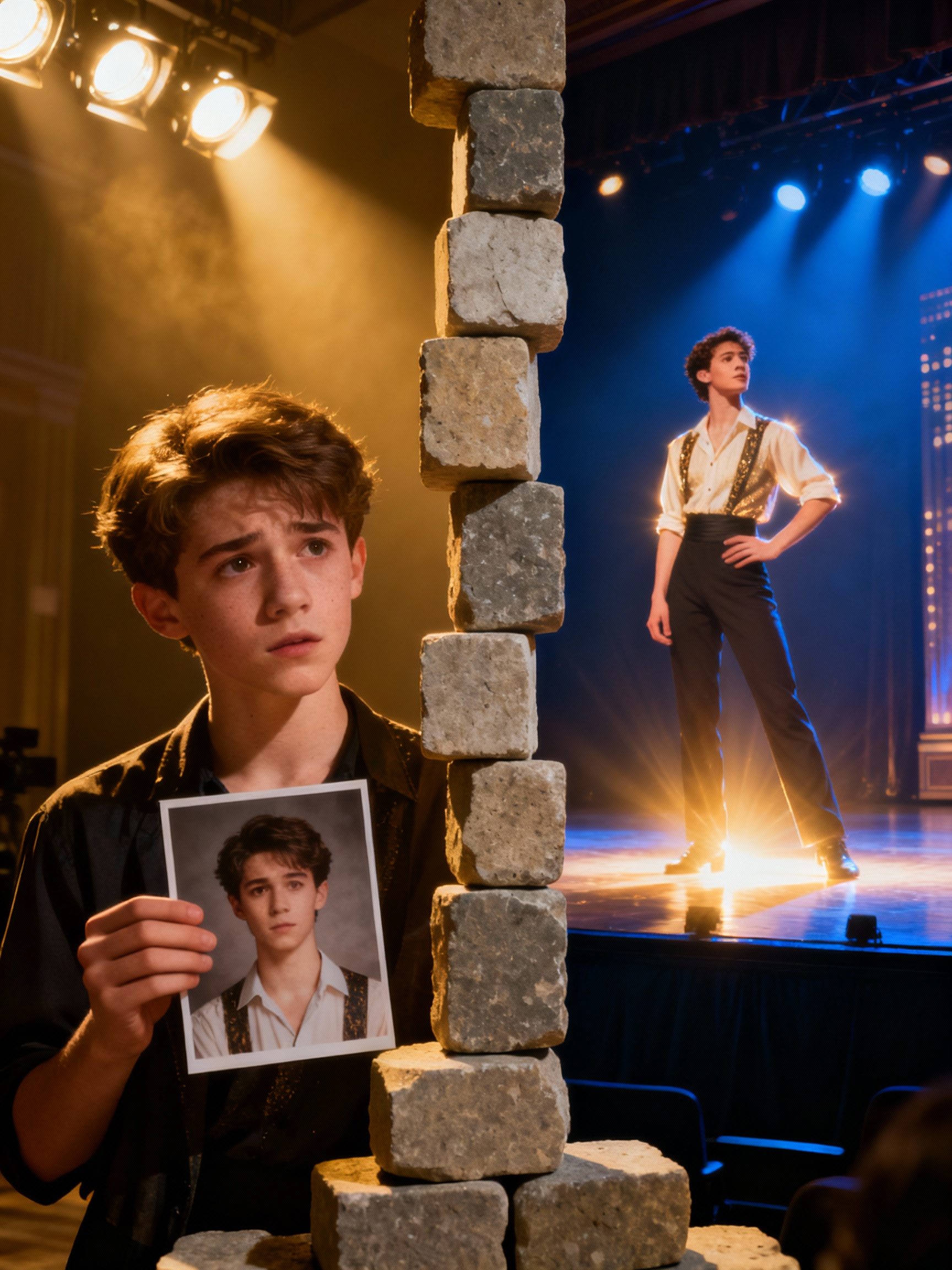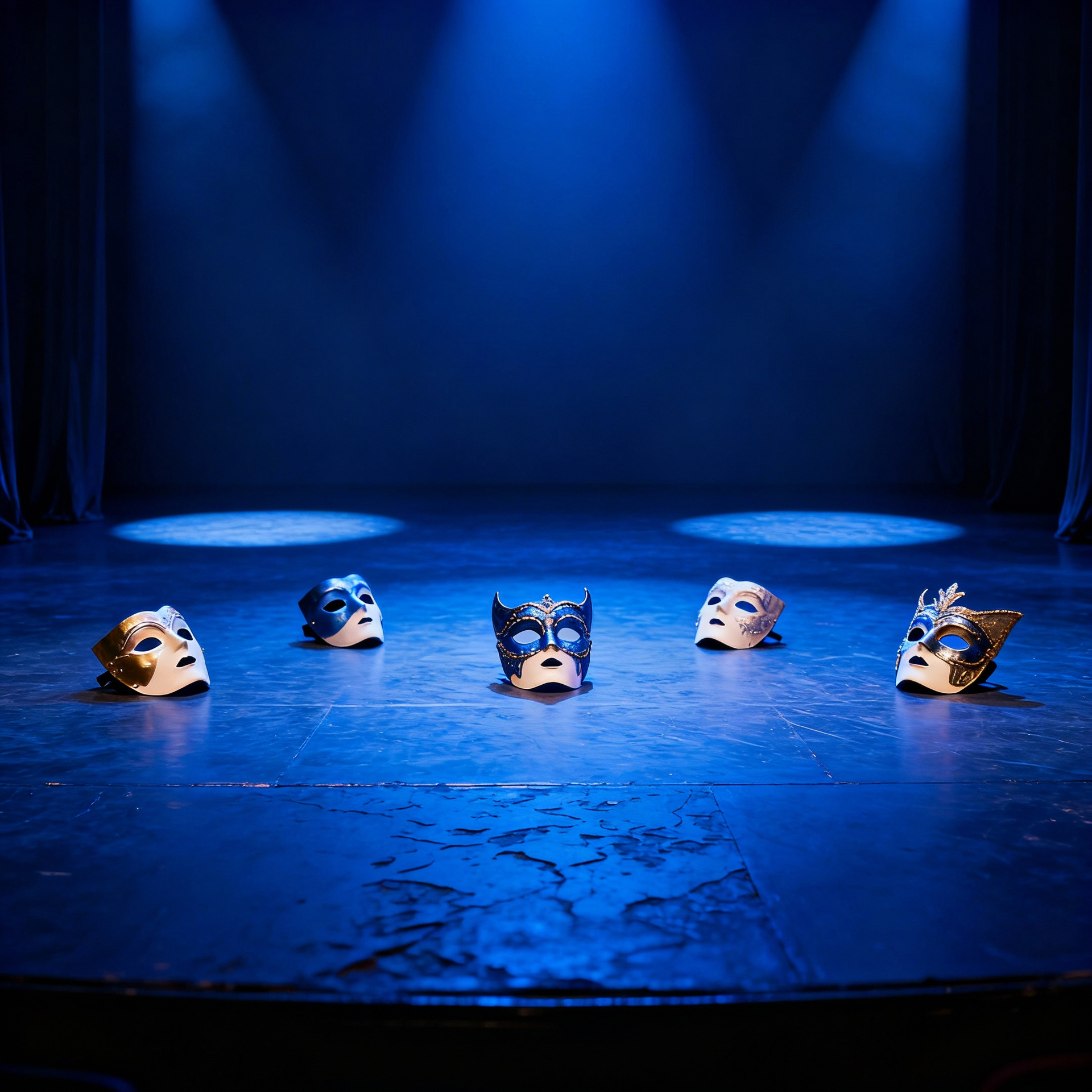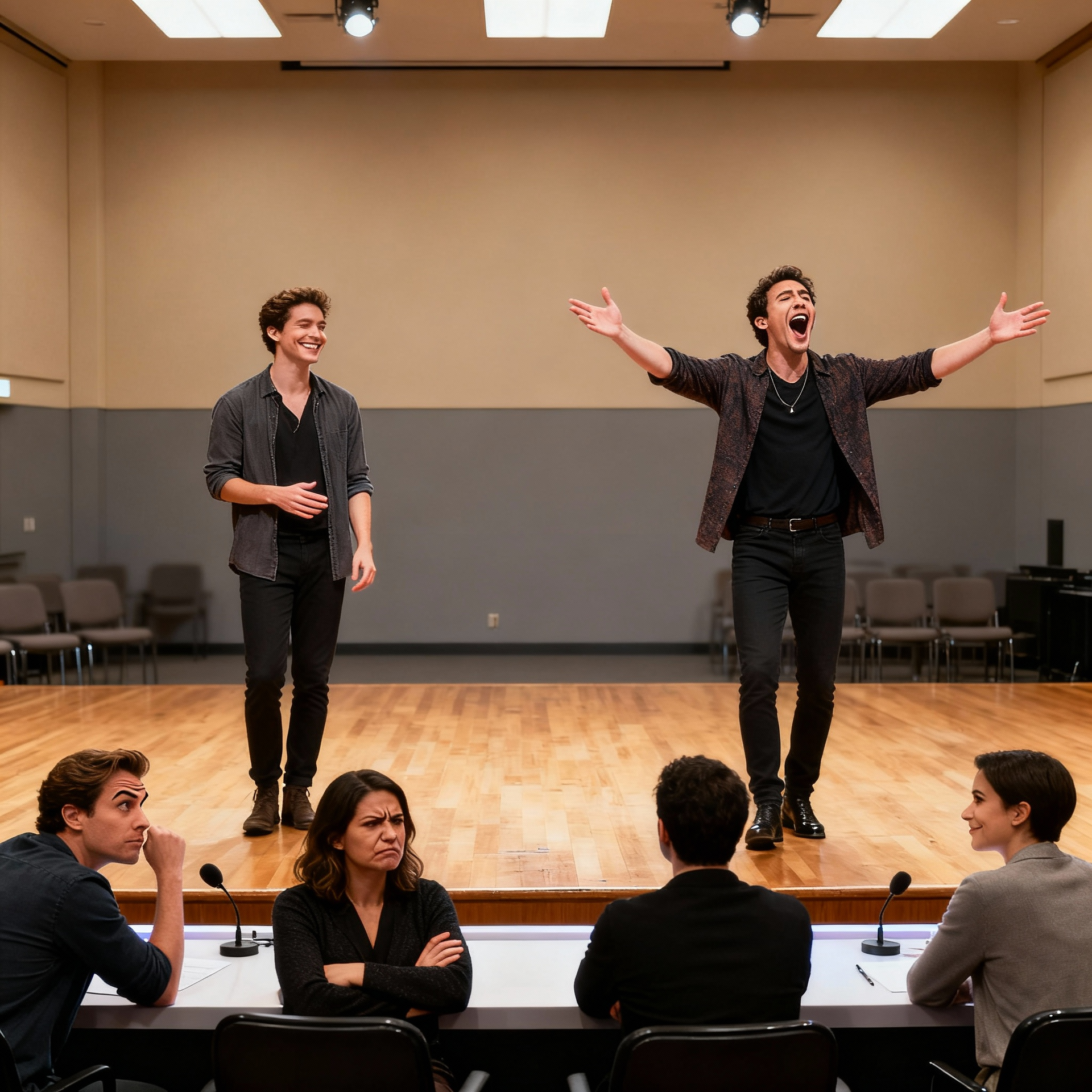The Real Story of Casting: Why It's Not (Always) About You By Victor Lopez
If you've ever seen a parent's face after their child didn't get the lead role they wanted, you know the look. It's a mix of hurt, confusion, and a little bit of "I think they're playing favorites." But what if I told you the truth is a lot funnier and more complicated?
Hey everyone, Victor Lopez here. For over 30 years, I've had the immense privilege of working with some of the most talented students and families in Northern Virginia through Lopez Studios Inc. I’ve seen countless auditions, watched dreams take flight, and, yes, I’ve also seen a lot of disappointment.
One of the toughest parts of my job is helping students and parents navigate the emotional roller coaster of casting. I've heard it all: "They didn't get the part because the director doesn't like them," "The director is playing favorites," or "My child is clearly the most talented, so why didn't they get the lead?" These are understandable feelings, but they're almost always based on a fundamental misunderstanding of how the casting process actually works.
Let's be real: Casting is not a talent competition. I know, I know, that sounds crazy. But in my experience, talent is only about 1% of the equation. The other 99%? That's logistics. Pure, unadulterated, often-hilarious logistics.
So, let's pull back the curtain and peek behind the director's table. What are we really thinking about?
1. The Physics of the Stage
Imagine you’re directing Wicked. You have two fantastic singers who are vying for the role of Elphaba. One is 5'2", and the other is 6'0". Now, let's say your Glinda is a petite 5'1" and the Fiyero is a solid 6'3". The visual dynamic on stage is everything. We have to consider things like:
- Sightlines:
Will the audience in the back row be able to see everyone?
- Balance:
Will a very tall lead make a shorter supporting cast member disappear?
- Chemistry: Do these two actors, side by side, create a believable and balanced picture?
We've had auditions where an actor’s voice was perfect, but their height made them impossible to cast in a specific role because they would have completely overshadowed their scene partner. It’s not about talent; it's about making the picture work.
2. The Great Puzzle of the Ensemble
Think of a show like Les Misérables. It's not just about finding your Jean Valjean and Javert. It’s about creating a living, breathing world. The ensemble is the soul of the show, and casting it is like solving a massive puzzle. We need to find people who can:
- Vocal Range:
Do we have enough tenors and basses to create that powerful choral sound?
- Dance Ability:
Can this group pull off the choreography? Do we have enough strong dancers to carry the scenes?
- Look: Do we have enough actors who can believably play the roles of soldiers, students, or townspeople of a certain era?
I remember a time when we had a dozen incredibly talented sopranos audition for a show, but we only had two baritones. If we cast all the sopranos, our group numbers would sound… well, they'd sound pretty thin. We had to make the difficult decision to cast a less vocally strong but equally committed mezzo-soprano because her vocal range was what we needed to make the entire chorus sound complete. It wasn’t a slight against the other singers; it was a choice made to serve the entire production.
3. The Funny, Unexpected Logistical Challenges
Sometimes, the reasons for casting decisions are downright bizarre. I'm talking about things you couldn't possibly know.
- The "Double-Booked" Actor:
An actor might have the lead role in their sights, but we find out they're also committed to another show or a major family event on a key rehearsal day. It’s a sad but simple fact: if you can't be there, we can't cast you.
- The Sibling Factor:
This one's a classic. We might have two incredibly talented siblings audition. We’d love to cast both, but if they're playing enemies on stage, and we know they fight like cats and dogs off stage, we might have to make a tough call to preserve the peace in the cast and the integrity of the rehearsal process.
- The "Right" Kind of Crazy:
A director once told me about a student who was a fantastic actor, but he was cast in a smaller role because his chaotic energy and a tendency to go rogue in rehearsals would have made it impossible to get the whole show ready on time. He was a brilliant performer, but the director knew he couldn't handle the pressure and responsibility of a lead.
4. The Broadway Reality
In my own career as a lead vocal coach, I’ve had students and clients go on to perform on Broadway. I have seen this process at the highest level, and the rules don't change just because the stakes are higher. In fact, they become even more pronounced.
Even the most seasoned, brilliant, and talented actors have to compete for parts. And just like in our studios, only one person can get the role. Think about it: when Idina Menzel was cast as Elphaba in the original Broadway production of Wicked, do you really think she was the only one with the talent to play the part? Of course not. She was up against other powerhouse performers like Stephanie J. Block, who also delivered a fantastic audition. In the end, the directors had to choose. It wasn’t a matter of one being more talented; it was a choice that fit the ultimate vision for the show.
Every single actor on that stage, from the leads to the ensemble is a professional with immense talent and a long history of hard work. They all competed for their spot, and many equally talented actors didn't get it. This is simply the reality of the industry.
So, What's the Takeaway?
Next time you don’t get a part you wanted, I want you to remember this: It’s not a rejection of your talent. It’s a logistical decision made for the greater good of the show. Your talent is still there. Your hard work is still valuable.
And let's get real for a second: not everyone can be the lead. If you have five amazing actors who are all perfect for one role, only one of them will get it. It's a simple mathematical fact. One person will land the part, and the other four all equally talented and deserving will not. This doesn't make them failures or mean they did anything wrong. It just means the director had to make a choice.
This is a lesson I even apply in my own casting processes for our school's productions. Even though I know what's required and I prepare my students to the highest level, I never, ever promise anyone a specific part. Sometimes, even when I think they might be the best for the role, a different choice is made for reasons like chemistry or overall balance of the cast. It's why I've learned that you can't promise anything, even when you're the one in charge.
We always encourage our students to feel what they feel, and you have every right to be disappointed. But at some point, you have to understand the bigger picture, pick yourself back up, and move on. The directors and casting committees aren't against you. They're on a quest to build the best possible show, and sometimes, that means making choices that don't make sense from the outside.
So, let's leave the hurt feelings and the blame game behind. Let's start a new chapter where we celebrate every role, big or small, because we know that every single person is a crucial piece of the puzzle. Let's learn to laugh at the ridiculous logistics and appreciate the beautiful chaos of putting on a show.
Keep auditioning, keep shining, and remember: The show must go on! GO BLUE!
RELEVANT RESOURCES TO EXPLORE
COMING SOON!
SHARE THIS BLOG POST










